A public conference celebrating 40 years of the EU’s Framework Programmes, and 20 years of Science|Business (09:00-17:30 CET)
In 2024, the EU will reach an important milestone: the 40th anniversary of the launch of its first Framework Programme (FP) for research. On the occasion of its annual Network conference, Science|Business – which will more modestly celebrate 20 years of its own existence – will convene international leaders from across the science, technology and innovation spectrum to take stock of what the FPs have delivered to date, analyse their impact on Europe and on global R&D cooperation, and discuss future directions for the EU in science and technology.
Among the central themes to be addressed: As the EU institutions and member-states begin their deliberations on what will succeed Horizon Europe, how should the Framework Programme evolve in its 10th edition, and is the current approach the best in the long run? Is Europe ready to invest what it takes to remain a global leader in critical technology domains? Can policy and regulation keep pace with breakthrough science and drive innovation in industrial R&D ecosystems? What will the world look like 40 years from now, and what will be the role of science and technology in ensuring the planet remains a safe, clean and healthy place to live? And given current geopolitical trends, how to ensure that the world continues to work together on R&I and not follow divergent paths?
On February 12-13, join us in Brussels and online – along with past, current and possibly future architects of the Framework Programme – for a celebration of the EU’s journey to date, and more importantly a forward-looking exploration of what the next four decades may hold.
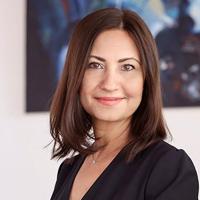
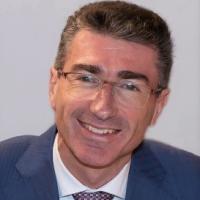
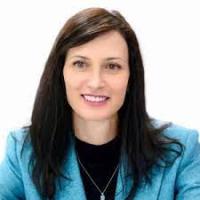
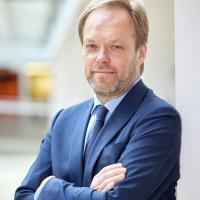
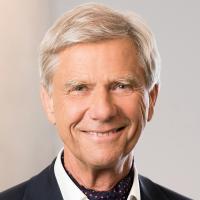

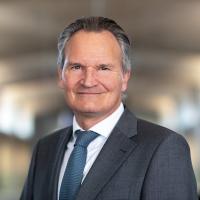

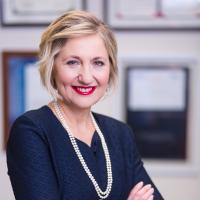

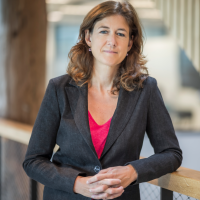
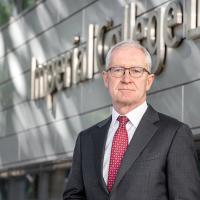
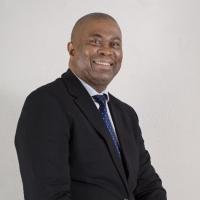
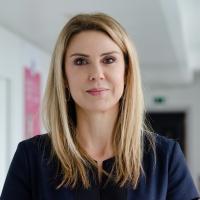

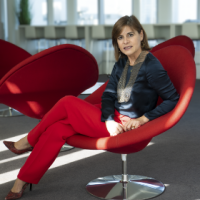
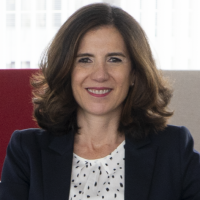
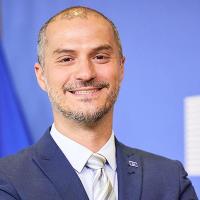
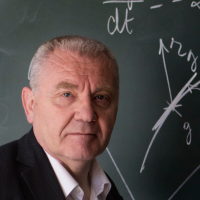
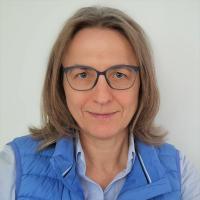
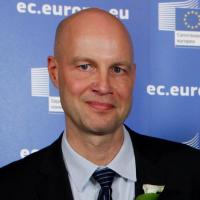
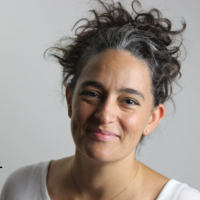
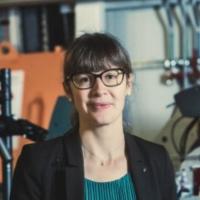

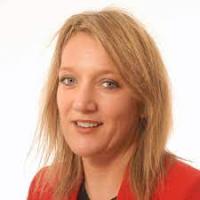
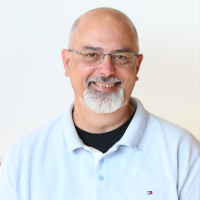
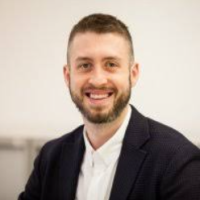
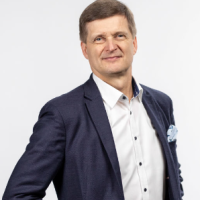
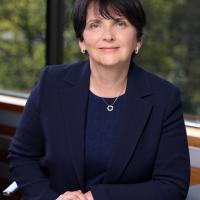

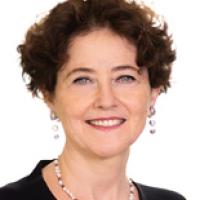
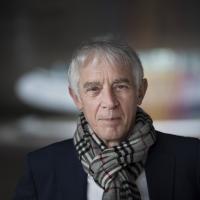
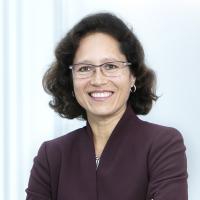
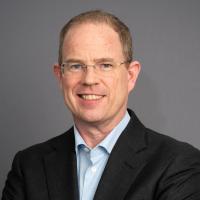
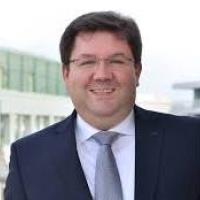
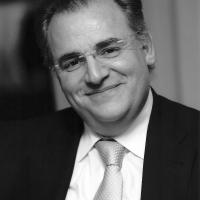
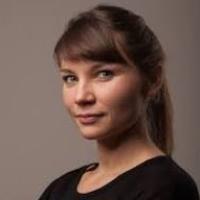
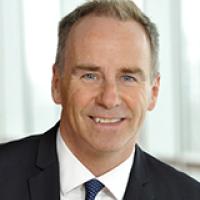
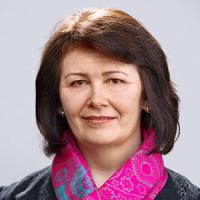
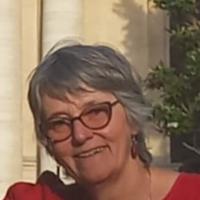
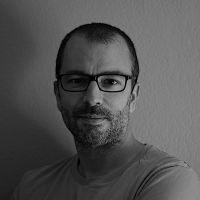
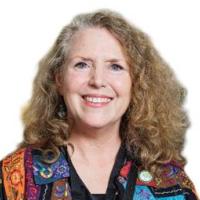
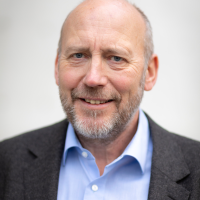
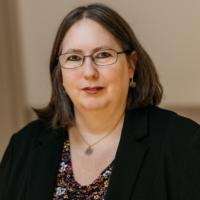
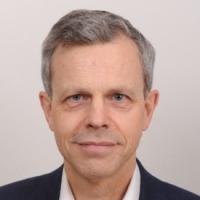
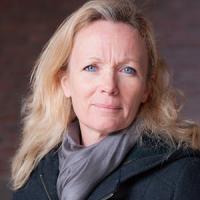
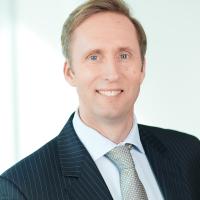
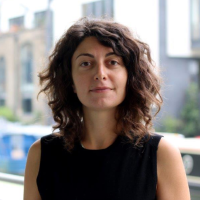
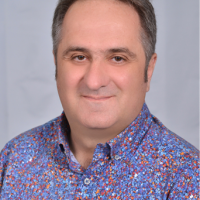
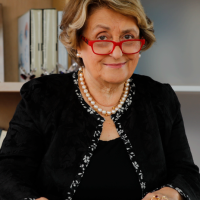
09:00 WELCOME & OPENING REMARKS
Maryline Fiaschi, Chief Executive Officer, Science|Business
09:05 PLENARY SESSION: Vision 2050 – Part I: “Future-proofing” the next Framework Programme
Since their launch in 1984, the EU’s Framework Programmes (FPs) have established themselves as the world’s largest vehicle for transnational R&I, and as a beacon for international science cooperation. But in an age of increasing volatility and complexity, is the traditional model still fit for purpose? What will it take to “future proof” the successor to Horizon Europe? Can Europe anticipate policies to remain technologically competitive into the late 2030s, and will it make the investments needed to deliver? And if given carte blanche, how would R&I leaders design the next flagship to tackle the planetary challenges ahead?
Panel discussion featuring:
- Annelien Bredenoord, Rector Magnificus, Erasmus University Rotterdam
- Patrick Cramer, President, Max Planck Society
- Hermann Hauser, Co-Founder, Amadeus Capital Partners
Moderated by Maryline Fiaschi, Chief Executive Officer, Science|Business
09:45 VIDEO MESSAGE
- Iliana Ivanova, European Commissioner for Innovation, Research, Culture, Education and Youth
09:50 PLENARY SESSION: Happy anniversary: Science|Business at 20
In 2004, a small group of senior journalists decided to create Science|Business, an online news service to fill an important gap in the mainstream media landscape – namely, research and technology development and its wider relevance to society. As we celebrate our 20th birthday, Science|Business highlights some key take-aways from the FP journey to date, and reflects on why those should not be forgotten as Europe thinks about its long-term future.
- Richard L. Hudson, Editorial Director, Co-Founder and Vice Chair of the Board, Science|Business
- Florin Zubaşcu, Executive Editor, Science|Business
10:00 COFFEE BREAK
10:30 PARALLEL SESSIONS: Vision 2050 – Part II: Anticipating the next decades of industrial R&I
The EU’s first FP was a groundbreaking initiative to support cross-sector, cross-border industrial research and technology development. Yet today European companies are lagging behind international rivals in R&D and innovation spending, while wrestling with a fragmented and complex regulatory landscape. What does industry need from the EU and governments to transform its prospects for the next 20-30 years?
Session 1 – Back to basics: How to reinvigorate the science-to-business R&D partnership model?
Pre-competitive, collaborative R&D has defined the nature of Europe’s science-to-business partnerships for decades. However, in recent years various factors – including political pressure to justify R&I budget increases – have tilted the balance more towards closer-to-market solutions and short-term impact. Under Horizon, partnerships have reduced in number but in many instances increased in size, scale and complexity. As a consequence, there is a growing sense of a shift in emphasis from cooperation to competition, of lower incentives for large companies to work with their peers and other top research partners, and of a potential weakening of innovation pipelines across sectors. So what will it take to increase the “pull” factor for industry to play a leading role in FP10 and beyond? Does Europe’s current PPP model need an overhaul to make it more dynamic, including more space for SMEs to participate? And how to ensure that partnerships strengthen the whole R&I ecosystem in Europe, not just the select few tasked with leading them?
Panel discussion featuring:
- Martin Vetterli, President, Ecole Polytechnique Fédérale de Lausanne (EPFL)
- Mathias Rauch, Chief Representative for the EU, Fraunhofer; Chair of the Supervisory Board, Fraunhofer Austria
- Annika Borgenstam, Vice Rector for Research, KTH Royal Institute of Technology
- Casper Garos, Head of Public-Private Partnerships, Philips
Moderated by Carlos Härtel, Chair of the Board, Science|Business
Session 2 – Industry unleashed: What will it take to transform corporate investment and innovation in Europe?
In an increasingly turbulent world, policy makers are striving to define a “future-proof” industrial strategy, and the role of R&I in delivering against its objectives – a process made more complicated by strategic autonomy and technological sovereignty agendas, not to mention budget constraints. Looking into the 2030s, how can policy change its approach to R&I investment? What steps can be taken to better support its companies and their R&I partners to compete at a global level, boost regional and national development, and strengthen value chains from top to bottom?
Panel discussion featuring:
- Karin Conde-Knape, Senior Vice President, Global Drug Discovery, Novo Nordisk
- Ina Sebastian, Vice President, R&D&I Policy, Infineon Technologies
- Robert-Jan Smits, President of the Executive Board, TU Eindhoven
- Tor Grande, Rector ad interim, Norwegian University of Science and Technology
Moderated by Simon Pickard, Network Director, Science|Business
11:15 TRANSITION BREAK
11:30 PARALLEL SESSIONS: Game changers: What could revolutionise the next Framework Programme?
Parallel workshops exploring a select number of issues that may have a transformative impact on the design, implementation and impact of Europe’s next FP. Indicative themes:
Session 1: Deepening cooperation with the Global South for sustainable health futures
A healthy and sustainable world requires investing in global health innovations, not only to fight current and future pandemics but also to address unmet medical needs and market failures. As cases in point, poverty-neglected diseases or unique health needs for women require a coordinated approach and wider cooperation with the Global South. How can R&I cooperation and FP10 be designed to give the best future prospects for citizens around the globe? How can society be better involved in co-programming moving forward?
Panel discussion featuring:
- Maria Cristina Russo, Director, Global Approach and International Cooperation, DG RTD, European Commission
- Peter Piot, Special Adviser on European and Global Health Security to President von der Leyen, European Commission
- Glenda Gray, President and Chief Executive Officer, South African Medical Research Council
- Andrew Tuttle, Chief Strategy Officer, Policy Cures Research
- Benjamin Roche, Research Director, French National Research Institute for Sustainable Development (IRD)
Moderated by Lisa Goerlitz, Head of Brussels Office and Advocacy Unit EU, DSW
Supported by DSW
Session 2: ‘Next gen’ infrastructures as enablers to solve tomorrow’s industrial and societal challenges
A new generation of synchrotrons offers a rare opportunity to rethink how research infrastructures (RIs) are embedded in innovation and economic models. Upgraded facilities have the potential to transform business models, accessibility, user experience and systems that will fully capitalise on scientific experiments and increased capacities. Building on the ESRF’s Extremely Brilliant Source and the STREAMLINE project, this session will explore how rapid improvements in beam brilliance – and the latest technology available in Ris – will contribute to pushing the boundaries of scientific knowledge and solving the biggest societal challenges.
Keynote speeches by:
- Bernd Hinrichsen, Chief Executive Officer and Co-Founder, Momentum Transfer
- Edith Heard, Director General, European Molecular Biology Laboratory (EMBL); Professor, Collège de France
Panel discussion featuring:
- Bernd Hinrichsen, Chief Executive Officer and Co-Founder, Momentum Transfer
- Edith Heard, Director General, European Molecular Biology Laboratory (EMBL); Professor, Collège de France
- Marie-Ingrid Richard, Scientific Researcher, CEA; Visiting Scientist, ESRF
- Michael Arentoft, Head of Unit, Open Science & Research Infrastructures, DG RTD, European Commission
- Michael Krisch, ad interim Director of Research for Life Sciences, Chemistry, and Soft Matter Science, ESRF
Moderated by Maryline Fiaschi, Chief Executive Officer, Science|Business
Supported by European Synchrotron Radiation Facility (ESRF)
Session 3: Back to the future: Rethinking Framework in the context of enlargement?
Over the past forty years, the EU has almost tripled in size – and with each expansion, the Framework Programmes have served as a key vehicle for integrating new member-states into the European project, albeit with varying degrees of success. With conflict shadowing its eastern borders, and amid wider geopolitical tensions, enlargement is once again on the EU’s institutional agenda. But as deliberations begin over FP10, what will be the implications for research and innovation funding and programmes, as and when new countries join the Union? Should the current widening and strengthening model be rethought, reformed or replaced? And what critical lessons can be learned from previous cycles to optimise the benefits for the entire R&I community?
Panel discussion featuring:
- José Carlos Caldeira, Member of the Board, INESC TEC
- Marina De Giorgi, Senior Partner Relations Officer, GÉANT
- Monica Dietl, Executive Director, Initiative for Science in Europe (ISE)
- Anastas Mishev, Full Professor, University of Ss Cyril and Methodius, North Macedonia
- Jean-Pierre Bourguignon, Nicolaas Kuiper Honorary Professor, IHES; Former President, European Research Council
Moderated by Edit Herczog, Senior Advisor, Science|Business
Supported by the Science|Business Widening Initiative
12:30 NETWORKING LUNCH
13:30 PLENARY SESSION: United or divided – Part I: Will the world be working together in science and tech by 2050?
Science is universal, runs the old adage, yet the 21C world order is placing that in increasing jeopardy, as a multipolar future defined by competition and hostility starts to take shape. Can R&I survive geopolitics and keep its borders open, and what will be required to hold the system together?
Panel discussion featuring:
- Jerry Sheehan, Director, Directorate for Science, Technology and Innovation, OECD
- Phil Mjwara, Director-General, Department of Science and Innovation, Government of South Africa
- Makiko Naka, Executive Director, RIKEN
- Kurt Vandenberghe, Director-General, DG CLIMA, European Commission
Moderated by David Matthews, International Editor, Science|Business
14:10 KEYNOTE INTERVIEW: United or divided – Part II: Can Europe ever realise its dreams of cohesion and excellence?
For decades, the EU has struggled with innovation performance and investment gaps – primarily between older and newer member-states, but also within national borders. Moreover, lasting synergies between its flagship research and structural funds continue to prove elusive. So what short- and long-term options does Europe have to fix the situation?
- Mariya Gabriel, Deputy Prime Minister & Minister of Foreign Affairs, Government of Bulgaria
Moderated by Florin Zubaşcu, Executive Editor, Science|Business
14:30 TRANSITION BREAK
14:45 PARALLEL SESSIONS: For the greater good: How can science transform its future impacts on society
Parallel workshops addressing ways in which the research world can maximise its contribution to the betterment of society and strengthen the global science system. Indicative themes:
Session 1: AI and the stewardship of science: Time for a new blueprint?
The intrinsic value of research depends largely on the ability of its practitioners to translate its outputs into applications and insights that benefit society at large. In recent decades, the stewardship of this process has tended to rest in the hands of select groups of experts, given added legitimacy by academic seniority, the peer review system and codes of research ethics. Yet the mainstream emergence of AI technologies – combined with the chaotic realities of the social media age – are obliging a deep rethink how research outputs are assessed, translated and communicated, and how to secure public and political trust in science. In this context, does the world of research need to redefine its stewardship models and the ways in which it connects and communicates with society? And looking to the future, what roles might different stakeholders play in shaping and installing a new paradigm?
Panel discussion featuring:
- François Bertrand, Vice President, Research & Innovation, Polytechnique Montréal
- Nick Fowler, Chief Academic Officer, Elsevier
- Hilary Hanahoe, Secretary-General, Research Data Alliance (RDA)
- Liviu Ştirbăț, Head of Unit, Industry 5.0 & AI in Science, DG RTD, European Commission
- Tiina Kupila-Rantala, Vice Managing Director, CSC – IT Center for Science
Moderated by Simon Pickard, Network Director, Science|Business
Session 2: Hot talent: How to train future tech innovators
As AI, autonomous vehicles, green energy and other hot technologies roll out, Europe will have a problem if it lacks the talent needed to make it all work – people with, not only a STEM education, but also the hands-on experience with team work, creativity, communications, project management and more to turn a nerdy tech into a cool product or service. To get them, we will need new educational programmes to broaden the learning experience – to parachute more students inside organisations working with these technologies. Research infrastructure, working in partnership with established educational institutions, are one such training ground that Europe can use. Small companies and multinationals are another. This workshop will examine Europe’s growing STEM-supply gap, case studies of innovative training models, and suggestions for new kinds of programmes.
Panel discussion featuring:
- Anna Panagopoulou, Director, European Research Area and Innovation, DG RTD, European Commission
- Antoaneta Angelova-Krasteva, Director, Innovation, Digital Education and International Cooperation, DG EAC, European Commission
- Ilkka Niemelä, President, Aalto University
- Pablo Garcia Tello, Section Head, Development of New Projects and Initiatives, EU Office, CERN
- Chiara Giovenzana, Chief Executive Officer, Binella175; Member, Independent R&D&I Committee (IC), ATTRACT
Moderated by Richard L. Hudson, Editorial Director, Co-Founder and Vice Chair of the Board, Science|Business
Supported by the ATTRACT Project
Session 3: Full potential: Empowering women in science
The worlds of research and innovation have their fair share of structural inequalities, with gender diversity and equality having emerged as a key concern in recent years. Beyond issues of basic fairness, this raises more strategic considerations – such as the impact of female talent drain on our collective ability to solve global challenges, the barriers faced by women founders of tech start-ups, and the benefits of leadership diversity on organisational performance. Against this backdrop, what more can be done to shatter the glass ceiling in R&I in order to harness the full potential of female talent?
Panel discussion featuring:
- Orla Feely, President, University College Dublin
- Gülsün Sağlamer, Founding Honorary President, EWORA
- Ylann Schemm, Executive Director, The Elsevier Foundation
- Amanda Crowfoot, Secretary General, European University Association
- Ronald de Bruin, Director, COST Association
Moderated by Maryline Fiaschi, Chief Executive Officer, Science|Business
Supported by Elsevier, in partnership with the European Women Rectors Association (EWORA)
15:45 COFFEE BREAK
16:15 SCIENCE IN THE SPOTLIGHT: Extremely brilliant: Will synchrotrons help to unlock the secrets of the universe?
A live Q&A with Francesco Sette, Director General, European Synchrotron Radiation Facility (ESRF)
Moderated by Florin Zubaşcu, Executive Editor, Science|Business
Supported by European Synchrotron Radiation Facility (ESRF)
16:35 PLENARY SESSION: Framework vs. programmes: Is Europe able to secure global leadership in R&I beyond Horizon?
A closing session to address what the current and next Commissions will need to do to anticipate and prepare for a volatile, hypercompetitive future in science and technology. How will planning for Horizon Europe’s successor be shaped by global dynamics, geopolitics and challenges? Is the FP model still fit for purpose, or does the EU need to fundamentally rethink its strategy and approach to funding R&I? How to win the political argument at member-state level for scaling up and ringfencing R&I budgets? And how can the worlds of industry and research help the Commission prepare for an unpredictable future?
Panel discussion featuring:
- Marc Lemaître, Director-General, DG RTD, European Commission
- Thomas Jarzombek, Member and CDU/CSU Spokesperson on Research & Education, German Bundestag
- Maria da Graça Carvalho, Member, European Parliament
- Hugh Brady, President, Imperial College London
Moderated by Florin Zubaşcu, Executive Editor, Science|Business
17:30 CONFERENCE CLOSE & NETWORKING RECEPTION
The conference will take place at BluePoint Brussels, Boulevard Auguste Reyers 80, 1030 Brussels.
Please, see here how to reach the venue.
For further information, please contact [email protected]
Partners

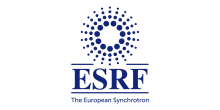
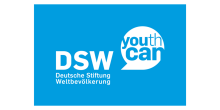
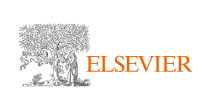
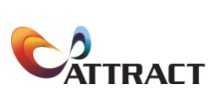

 A unique international forum for public research organisations and companies to connect their external engagement with strategic interests around their R&D system.
A unique international forum for public research organisations and companies to connect their external engagement with strategic interests around their R&D system.